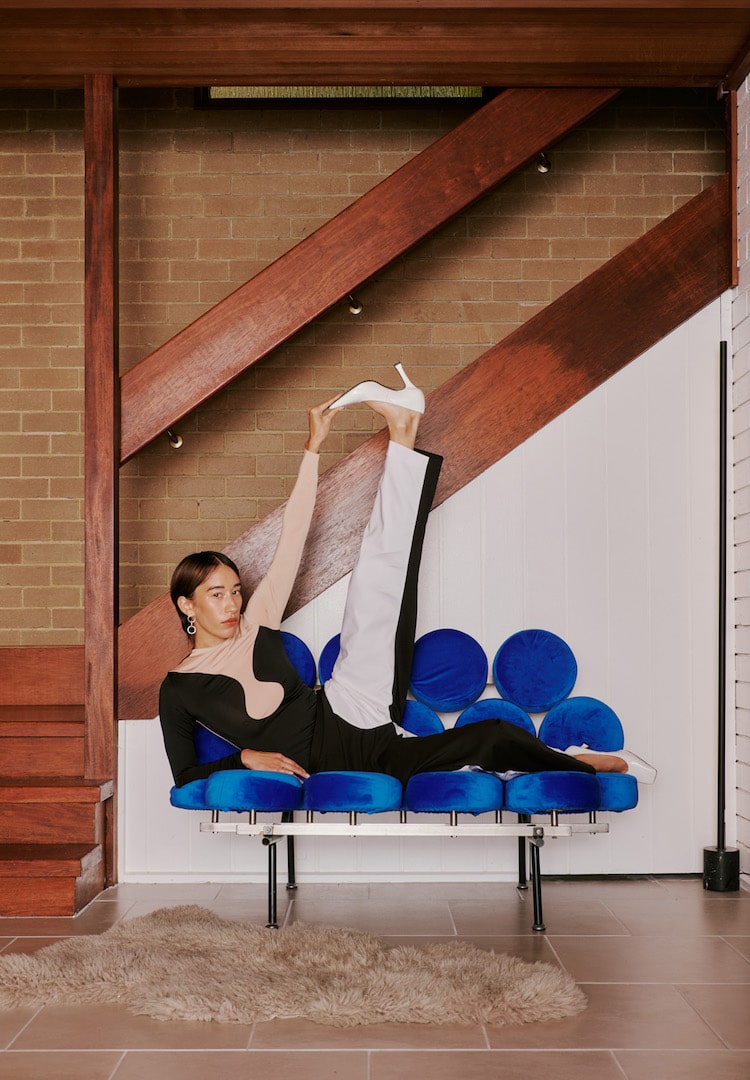How to say no if you don’t feel like being social right now
IMAGE VIA @LINNEKLUND/INSTAGRAM
Words by Genevieve Phelan
Prioritise your rest.
Is your invite-response vernacular limited to only one word? Mine is ‘yes’. I used to be a real stickler for overcommitting and under-delivering. Even when I was buried in deadlines or felt unwell or had a mad hankering for a home-cooked meal with Evan Wylde (see: The Secret Life of Us) on my laptop screen, I would compromise a night in for a dinner down the road with an old school friend.
And it would set me back mentally and physically, plus hinder my productivity for the week. I’d also feel a bit shit afterwards, because I probably didn’t give it my emotional ‘all’.
Interested to hear how others navigate the world? Head to our Life section.
It’s only in recent months that I’ve learned to reel in my plan-making a bit and prioritise the stuff I really want to do or go to, as well as refining the close circle of people I spend my free time with.
It’s still something I struggle with, as I’m sure a lot of us do. I tried to think of the busiest millennials my side of the Yarra. Naturally, the co-founder of Shameless Media, Zara McDonald, came to mind. Grappling with a whopping workload, copious invites and the social life of a 20-something, Zara has become something of a professional at guarding her time and sanity.
She’s honed how to manage the guilt associated with last-minute cancellations on friends, realising the relationships that truly matter will always understand when met with an authentic apology for having to sit some socialising out. I spoke to Zara to get some advice for those of us who still say yes when they really want to – or need to – say no.
“I’m so much better at saying no to people now than two or three years ago. Starting your own business is like baptism by fire. You need to learn how to work out how to say no, or run yourself into the ground by always saying yes,” she says.
The stop-and-start nature of lockdown in Melbourne has made the ‘lockdown eve’ scramble something of a routine. And when we’re released each time, it’s an anxiety-inducing rush to OpenTable and the GC (group chat) to co-ord a marathon of reconnection dinners, drinks and other dalliances. When we’re forced into doing nothing and are then suddenly free to gallivant in the wild again, our social batteries get zapped pretty quickly. The capacity we have to make plans has surely reduced since this time last year.
Writer Amy Campbell recently penned a viral-ish piece for Vogue on the pressures we feel to pack our schedules full of hedonism post-lockdown, titled ‘Why are all my 30-year old friends partying like they’re 18?’ In it, she wonders, “Why, all of a sudden, were we gripped by this urge to get dressed up, hit the town, make questionable decisions and rid ourselves of inhibitions?”
Amy speaks to COVID’s exacerbation of our self-guilt-tripping around going out, because “after being denied these frivolous liberties for so long, it’s only natural that our reaction would be to over-indulge”.
We keep seesawing between having literally no plans but premature at-home knockoff wines and Friday night cries to a sudden surplus of bookings, appointments and people to catch up with. And that can be really overwhelming when you’re out of practice (even though we’ve done this dance a few – or five to be precise – times now).
So how do you choose what to prioritise when mapping out your social engagements in 2021? And what do you do when you’re invited to an exciting event post-lockdown, but you’re grappling with a seriously turbo workweek or an off month mentally? Incredibly, we can actually just be honest instead of falling down that rabbit hole of excuse-making when we lack the social stamina to go.
Zara used the phrase “energy conservation” a few times during our chat and it’s really what bailing on plans or pulling off a slick Irish Goodbye at a party comes down to.
“Michelle’s dad actually gave us some advice that stuck. He said something along the lines of ‘If you wouldn’t say yes to it this week, you probably wouldn’t say yes to it at all’,” she says. I guess it’s about analysing if you’re going because you genuinely desire to, or because you feel like you should. Big difference there.
For Zara (and likely for many), the more comfortable she feels saying no to her friends, the more reinforcement she feels that they’re the important ones. When you send a message to a friend bailing on a dinner for authentic reasons because you know you’d be shit company anyway, just express that.
For example, you’ve come home from a killer day at work and you’re hankering for a hot bath instead of mid-week trivia. Trivia would be fun and you made the plans weeks back, but you’re aware you’re not going to be the best version of yourself going out.
A text blueprint to send could be as simple as, “Hey [insert name], I think I really need to have a home night this evening. Don’t feel like I’d be the best company but hope you all have a great night. Speak to you tomorrow xx”
If a friend knows you well enough and this isn’t something you do every second week, they’ll likely understand that you’re not being a shit mate, you’re just conserving your energy. The people who care about you will always ‘get it’, albeit maybe being a little miffed at first.
I’m the last person to take my own advice and find it very difficult to spend a night at home solo when the throng of Swan Street rumbles outside my apartment window. But I am vowing to say no a little more honestly and frequently despite feeling wracked with FOMO. I guess uttering ‘No’ is just another muscle to strengthen. After you’ve done it a few times, you realise your friends won’t hate you and the sun will still rise the next day when you take a quick hiatus for the preservation of self.
As I went to submit this piece I saw the Instagram account @griefclub.co share a pertinent screenshot from The New York Times bestselling author Matt Haig’s The Comfort Book. It’s about the value of resting. I’ll leave you with an excerpt from the opening page of a chapter titled ‘Rest Is Doing’.
“You don’t need to be busy. You don’t need to justify your existence in terms of productivity. Rest is an essential part of survival… Just as we need pauses between notes for music to sound good, and just as we need punctuation in a sentence for it to be coherent, we should see rest and reflection and passivity – and even sitting on the sofa – as an intrinsic and essential part of life that is needed for the whole to make sense.”
Rest is doing. Remember that.
Find more ways to avoid saying yes too often here.










